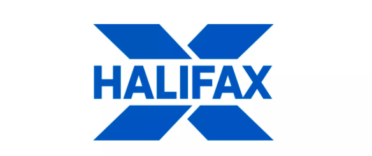 How much do you need to earn to get a £300k mortgage?
How much do you need to earn to get a £300k mortgage?
A mortgage lender will usually stipulate how much it is willing to lend based on your earnings using income multiples. Lenders are usually prepared to lend between 3 and 6 times your annual income, however, it varies lender by lender. So, based on a single applicant, earnings of between £50,000 and £100,000 per annum will usually be required in order to qualify for a £300,000 mortgage.
Two people who apply for a £300,000 mortgage will be able to use their combined income but lenders will usually lower the income multiples for joint applications, usually to between 2 and 3.5 times combined annual income.
Furthermore, lenders will check whether you can afford a £300,000 mortgage through an affordability assessment where your outgoings will be scrutinised. Even if you meet the income multiple criteria that a mortgage lender sets out, your mortgage application will ask for information about regular financial payments that you are committed to. This allows the lender to establish whether you meet its affordability criteria, where your outgoings will be assessed, including childcare costs, utility bills, insurance policies, travel costs and credit card or loan payments.
Additionally, the mortgage amount that you need as a proportion of the property price will dictate how generous the lender is when it comes to the income multiples offered to you. This is often referred to as the loan-to-value ratio.
To work out the loan-to-value (LTV), simply divide the mortgage amount by the property price and multiply by 100.
The best income multiples are usually offered to borrowers who require a 60% loan-to-value mortgage (or less). You will usually find that the income multiples will change between certain LTV bands - 60%, 80%, 90% and 95% - but you may also find special mortgage deals that offer higher income multiples for professionals who are in the early stage of their careers.
Earnings needed for a £300k mortgage
| Income multiple | 3 times income | 3.5 times income | 4 times income | 4.5 times income | 5 times income | 5.5 times income | 6 times income |
| Income required | £100,000 | £85,714.29 | £75,000 | £66,666.67 | £60,000 | £54,545.45 | £50,000.00 |
Find out how much you can borrow
A free mortgage review will help you get the best mortgage rate given your personal circumstances
What deposit do you need to get a £300k mortgage?
The deposit that you will need for a £300,000 mortgage will be determined by the price of the property you want to buy. The deposit is your contribution towards buying a property and is usually between 5% and 40% of the property purchase price. There are some deposit-free mortgage deals available, though these are rare.
Deposit needed for a £300k mortgage
| Property price | Deposit | Mortgage loan amount | Loan-to-value (LTV) |
| £300,000 | £0 | £300,000 | 100% |
| £315,789 | £15,789 | £300,000 | 95% |
| £333,333 | £33,333 | £300,000 | 90% |
| £352,941 | £52,941 | £300,000 | 85% |
| £375,000 | £75,000 | £300,000 | 80% |
| £400,000 | £100,000 | £300,000 | 75% |
| £428,571 | £128,571 | £300,000 | 70% |
| £461,538 | £161,538 | £300,000 | 65% |
| £500,000 | £200,000 | £300,000 | 60% |
How much will the repayments be on a £300k mortgage?
The actual amount you will repay each month is determined by a number of factors including the mortgage loan amount, the term over which you will repay your mortgage loan, the amount of interest the lender will charge and the type of mortgage that you choose.
Interest rate
The cost of repaying a mortgage is largely made up of the interest that is charged on the mortgage loan which will usually change during the life of the mortgage. Interest rates can be fixed for 2, 3, 5, 10 years or even for the full term of the mortgage. Fixed-interest mortgage deals are by far the most popular types of mortgage deals because they provide you with a fixed mortgage payment for a period of time. When this period ends, you can remortgage to either another fixed-rate deal or a variable-rate mortgage. You will find current mortgage deals updated regularly in our article, 'Best mortgage rates in the UK' including tracker, fixed and buy-to-let mortgage deals. Alternatively, you can search for specific mortgage deals to suit your needs using our mortgage comparison tool.
Mortgage term
The mortgage term that you choose will affect how much you pay each month. Choosing a long-term mortgage can reduce how much you pay each month, however, it will increase the amount you repay overall. This is demonstrated in the table below where we look at the monthly cost, the total amount that you pay back over the entire term and the total amount of interest that is payable.
Mortgage type
If you choose a repayment mortgage, your monthly repayment will be made up of the mortgage amount divided over the number of months of your mortgage term, plus the interest that accrues on the remaining mortgage loan amount. Borrowers who choose an interest-only mortgage will only pay the accruing interest on the mortgage loan as the capital amount should be repaid in full once you reach the end of the mortgage term.
Monthly mortgage payments on a £300,000 mortgage
| Mortgage term | Interest rate | |||||
| 1% | 2% | 3% | 4% | 5% | 6% | |
| 15 years | £1,795 | £1,931 | £2,072 | £2,219 | £2,372 | £2,532 |
| 20 years | £1,380 | £1,518 | £1,664 | £1,818 | £1,980 | £2,149 |
| 25 years | £1,131 | £1,272 | £1,423 | £1,584 | £1,754 | £1,933 |
| 30 years | £965 | £1,109 | £1,265 | £1,432 | £1,610 | £1,799 |
| 35 years | £847 | £994 | £1,155 | £1,328 | £1,514 | £1,711 |
| 40 years | £759 | £908 | £1,074 | £1,254 | £1,447 | £1,651 |
The above costs do not include lender fees or other mortgage costs and assume the mortgage is being repaid on the basis of capital and interest
How the mortgage term affects the overall cost of repaying £300,000
| Mortgage term | Monthly mortgage payment | Total repaid over full term | Total interest paid |
| 15 years | £2,372 | £426,920 | £126,920 |
| 20 years | £1,980 | £475,200 | £175,200 |
| 25 years | £1,754 | £526,200 | £226,200 |
| 30 years | £1,610 | £579,600 | £279,600 |
| 35 years | £1,514 | £635,880 | £335,880 |
| 40 years | £1,447 | £694,560 | £394,560 |
The above costs do not include lender fees or other mortgage costs and assume the mortgage is being repaid on the basis of capital and interest at a rate of 5% interest
How to get a £300k mortgage
It is helpful to understand what a lender requires when you apply for a £300,000 mortgage so that you can prepare accordingly.
Preparation is key to a smooth mortgage application. Below are some of the key details that your prospective lender will ask about before making an offer of a mortgage to you.
- Household income - your household income may come from more than one source so be sure to note your total household income including earned income, dividends, bonuses, commissions and state benefits
- Deposit amount - most borrowers tend to have a fixed sum of money that they have assigned for the deposit for their house purchase. Make sure that you have enough left over for other costs such as the property valuation, broker or lender fees, and conveyancing fees. Make sure that the money is accessible so that you can access it quickly when you need it
- Credit agreements - your mortgage lender will want to know about any other credit arrangements you have in place at the time of your new application. This will usually include any credit cards, loans, overdrafts or other forms of debt that you are responsible for repaying. It can be sensible to avoid opening up new lines of credit such as applying for a loan or credit card in the lead-up to arranging your mortgage. This could help you avoid any problems with meeting your lender's affordability criteria
- Credit score - your credit score indicates your creditworthiness to any prospective lenders. Your credit file will also hold information about your financial commitments and how well you manage these. For example, your credit file will include details of any missed payments or late payments and it's a good idea to review your credit file ahead of making a mortgage application so that you can correct any mistakes or misrepresentations within your credit file before it negatively affects your mortgage application. You can review your credit file with any of three main credit reference agencies, TransUnion, Experian and Equifax.
Instant free mortgage advice
Our partner Habito is a leading online mortgage broker and will recommend the best mortgage for you
- Habito checks over 20,000 mortgages from 90 mortgage lenders
- 5-star rating on Trustpilot from over 5,000 customer reviews
- Can register online
Steps to prepare for a £300,000 mortgage application
Step 1 - Gather documents for evidence
Mortgage applications generally require a fair amount of documentation to evidence the facts that you relay to your mortgage lender. These facts will include your identity, income, outgoings and details about your credit arrangements as well as bank statements that detail your spending. Be sure to collate recent documentation to verify your identity and financial information.
Step 2 - Pay off or consolidate your debts
Arranging a mortgage means that you're creating a new line of credit and the amount you can secure will depend on your income and your outgoings. It may be a good idea to either pay off or consolidate any debts that you already have in order to improve your affordability. Mortgage lenders will look for debt that is well-managed and within your means. It is sensible to minimise arranging any new lines of credit at least six months before you anticipate making an application for a new mortgage.
Step 3 - Create a budget and try to reduce spending
Setting budgets can be a good way to see exactly how much you earn compared to what you regularly spend. If you don't already do this, you may find that doing so helps reduce unnecessary spending and even uncover subscriptions and regular payments that you no longer need and can simply cancel. Getting started with budgeting is relatively straightforward and you can find everything you need to know in our article, 'The best budgeting apps in the UK and how to budget without trying'.
Step 4 - Improve your credit score
Your credit score can be easily accessed via one of the three main credit reference agencies - namely Equifax, Experian and TransUnion and you can request your credit file using MSM Credit Monitor. The information that is held about you will detail any financial misdemeanours which you should address as soon as possible before making a mortgage application. If your situation is complex and not easy to resolve quickly then you may need to seek specialist mortgage advice from a specialist mortgage broker*.
Step 5 - Get in touch with a mortgage professional
The last step in preparing for your £300,000 mortgage application is to consider speaking to an independent mortgage adviser mortgage. The mortgage market is complex and the landscape is constantly changing meaning it can be difficult to know exactly how much you can borrow. A good mortgage broker will talk you through all of the available options and guide you to the best solution for your particular circumstances. Mortgage brokers understand the lending criteria for each provider as well as the latest changes in the mortgage market ensuring you apply to the right lender at the right time, giving you the best chances of success.
At Money to the Masses, we have vetted the services provided by Habito*, one of the first specialist online mortgage brokers. Habito mortgage advisers are knowledgeable and can provide bespoke mortgage guidance. You can also reach out to Tembo* - a specialist mortgage broking service that is particularly good at helping first-time buyers get onto the property ladder. Alternatively, you can source a mortgage professional in your local area using the online professional directory service, VouchedFor*.
If a link has an * beside it this means that it is an affiliated link. If you go via the link, Money to the Masses may receive a small fee which helps keep Money to the Masses free to use. The following link can be used if you do not wish to help Money to the Masses or take advantage of any exclusive offers - Habito, Tembo, Vouchedfor,





